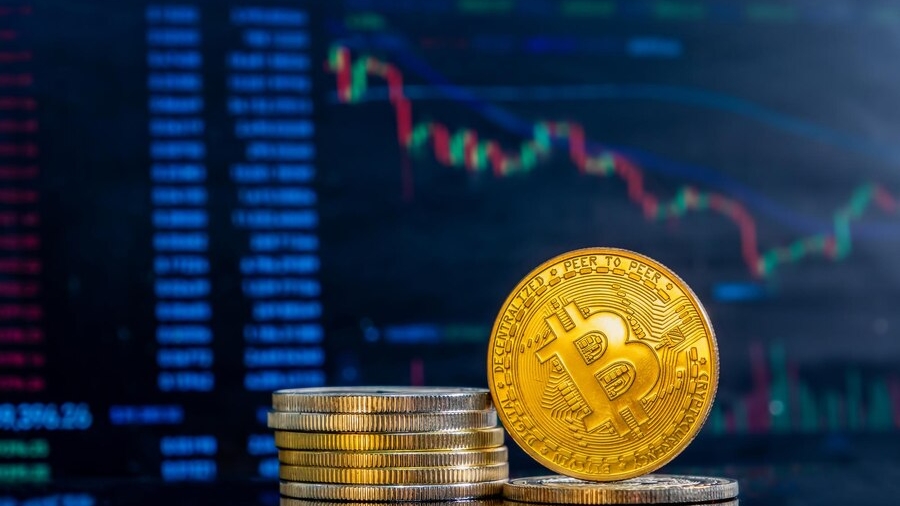Bitcoin has become a popular digital asset, but keeping it on an exchange might not be the best choice. While exchanges are designed for trading, storing your Bitcoin with them comes with serious risks. Let’s look at why exchanges aren’t the safest place for your Bitcoin and explore what you can do instead to keep it secure.
The Risks of Storing Bitcoin on an Exchange
At first glance, exchanges seem like the easiest option for storing Bitcoin. After all, they’re built for trading. However, the problem lies in the fact that exchanges are centralized platforms. This means the exchange controls your private keys, which are the only way to access and control your Bitcoin. If an exchange faces a hack, goes bankrupt, or encounters legal issues, your Bitcoin could be at risk.
In addition, exchanges can sometimes manipulate liquidity to their advantage. This means that your funds may not be as secure as you think. While an exchange might offer a seamless experience, it can also be making decisions that benefit them, not you. Plus, if there’s a regulatory crackdown or an operational failure, your Bitcoin could be frozen or lost.
Hidden Security Flaws on Exchanges
Even if an exchange claims to be secure, it’s essential to understand the potential vulnerabilities and how they are managed. For example, many exchanges use “hot wallets” to store Bitcoin, which are connected to the internet for quick and efficient transactions. These wallets are designed for accessibility, catering to users who need fast access to their funds.
Exchanges that utilize hot wallets often implement advanced security measures to protect against threats, including robust encryption and frequent security updates. By focusing on proactive measures like secure session management and real-time monitoring, exchanges can minimize risks and enhance the safety of their hot wallets while providing a seamless experience for users.
The Financial Risks Behind the Scenes
It’s not just security that’s a concern—there are also financial risks. Many exchanges engage in practices like rehypothecation, where they lend out customer assets for their profit. While this may not be visible to you, it puts your Bitcoin at risk, as it may not be readily available when you need to access it.
In addition, exchanges often impose withdrawal fees or delay processing requests. While these charges might seem small at first, they can add up over time. Delays in withdrawals can also leave you unable to access your Bitcoin when it’s needed most.
Legal and Regulatory Issues
Exchanges are subject to various regulations, and this can put your Bitcoin at risk. In some cases, exchanges face legal challenges that could result in the freezing or seizing of funds. If the exchange operates in multiple countries, users could face complications due to different regulatory frameworks. For example, you may not be able to access your Bitcoin if the exchange faces issues with regulators in another country.
Additionally, exchanges are required to share user data with regulatory authorities. While this helps them stay compliant, it may compromise your privacy. If privacy is important to you, keeping your Bitcoin on an exchange might not be the best option.
Why Self-Custody Is the Safer Option
Instead of leaving your Bitcoin on an exchange, a much safer alternative is to take control with self-custody. When you store your Bitcoin in a private wallet, you hold the private keys, ensuring that only you can access your funds. For those who prefer the convenience of managing their funds online while maintaining control, an option like the Bitamp Bitcoin Wallet offers a secure and user-friendly solution.
Unlike exchanges, online wallets allow you to manage your Bitcoin directly while still being accessible from any device with an internet connection. By choosing secure self-custody options and keeping your Bitcoin off exchanges, you reduce the risks associated with exchange hacks or failures, ensuring both convenience and peace of mind.
How to Secure Your Bitcoin: Advanced Security Measures
For even greater protection, you can use additional security measures like multi-signature wallets. This means more than one key is needed to approve a transaction, adding an extra layer of security. You can also store backups in multiple locations to ensure that your Bitcoin is safe even if one location is compromised.
A time-lock wallet could also be a useful tool. It delays the release of your Bitcoin until a specific time in the future, preventing someone from accessing it immediately in case of an emergency. These measures give you more control and peace of mind compared to leaving your funds on an exchange.
Planning for the Future
When you store Bitcoin in a private wallet, it’s important to plan for the long term. What would happen if you weren’t around to manage your assets? Setting up an inheritance plan for your Bitcoin, along with secure recovery options, ensures that your loved ones can access your funds when necessary.
It’s essential to keep your storage methods up to date. Security measures and technologies change over time, and so should your approach to storing Bitcoin. Regularly reviewing your security setup will help protect your Bitcoin for years to come.
Conclusion: Take Control of Your Bitcoin
While exchanges may seem like the easiest option for storing Bitcoin, they come with significant risks. The security flaws, financial risks, and regulatory issues make them a dangerous place to keep your assets. By moving your Bitcoin to self-custody, you regain control and ensure that your funds are protected.
Using hardware wallets, multi-signature solutions, and other advanced security measures can help you keep your Bitcoin safe. As you plan for the future, remember that self-custody not only gives you control but also peace of mind, knowing that your Bitcoin is secure, private, and accessible only to you. Take control of your financial future and keep your Bitcoin in your hands, not someone else’s.

